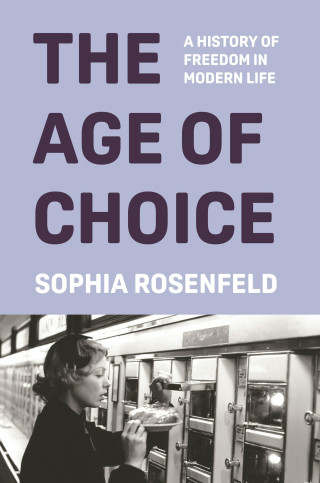But the 20th century added its own finishing touches to the story of choice. The ranks of choosers continued to expand, albeit highly unevenly, to include women, poor people, sometimes even children, especially in places where mass goods, from newspapers to chewing gum, became widely available. So did the ranks of ‘choice agents’, the people creating the menus of options, inventing the rules, and directing the activity itself. Beyond shop owners, itinerant preachers, dancing masters and political party officials, now new kinds of social scientists came to the fore. Psychiatrists, marketing experts, economists: in different ways, they all devoted themselves to the study of choice-making, exploring who makes what choices under what conditions and with what effects, along with how individuals and groups could be steered to make better ones. Ordinary people participated in this work every time they sat on a couch for a therapy session or filled out a survey card or took a multiple-choice exam. Together, researchers and their everyday subjects, male and female, invented sciences of choice, further entrenching the idea of humans as, fundamentally, choosers.
Needless to say, the rise of the internet has only expanded this model. Today, the sheer number of both choice-making opportunities and options has grown exponentially, whether we are talking about music or vacuum cleaners. The nature of our choices has also changed. Before the age of shopping for goods and selecting ideas had really gotten underway, most choices were structured around doing the right thing rather than the wrong. Since then, choice has increasingly become value-neutral, a matter of one’s own interior preferences being externalised in the act of selection. Moreover, choice has become more and more important to conceptions of human flourishing. Once, picking from menus was of relatively little significance, especially since freedom was imagined in the Western tradition well into the 18th century more often as a matter of not having to make many choices or strive too much thanks to being born with the status of an independent person. Over time, however, choice became a means of achieving the liberty to shape one’s life as one saw fit. It also became a key signifier of being a full-fledged, autonomous person worthy of respect by others. Since the end of the Second World War, we might say that it has become a value unto itself, widely celebrated from billboards to international human rights decrees as the meeting point of capitalism and democracy. When then French presidential candidate Emmanuel Macron said, in 2016, ‘I believe deeply in a society governed by choice,’ he was in a certain sense uttering what had become a banality.
